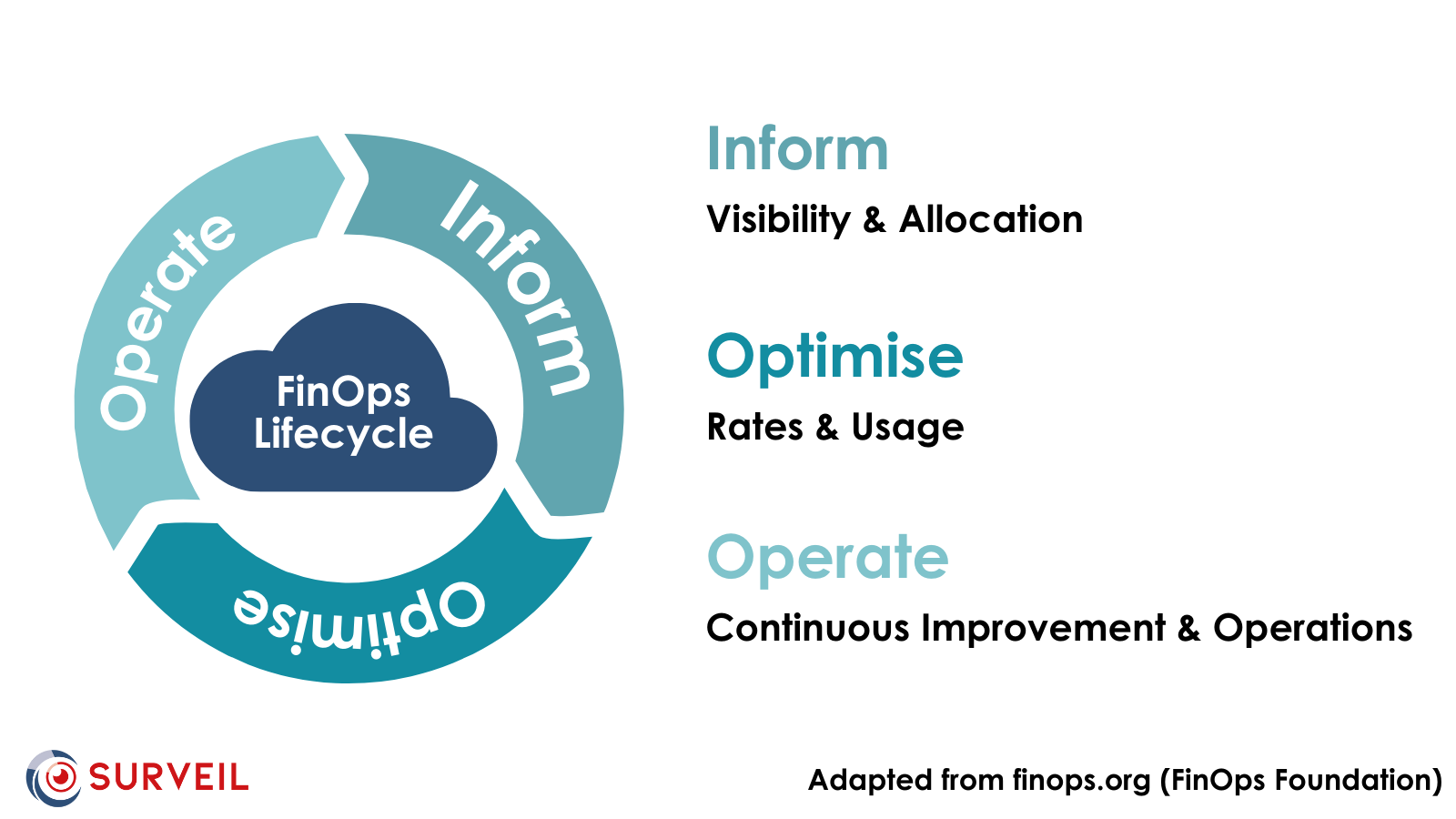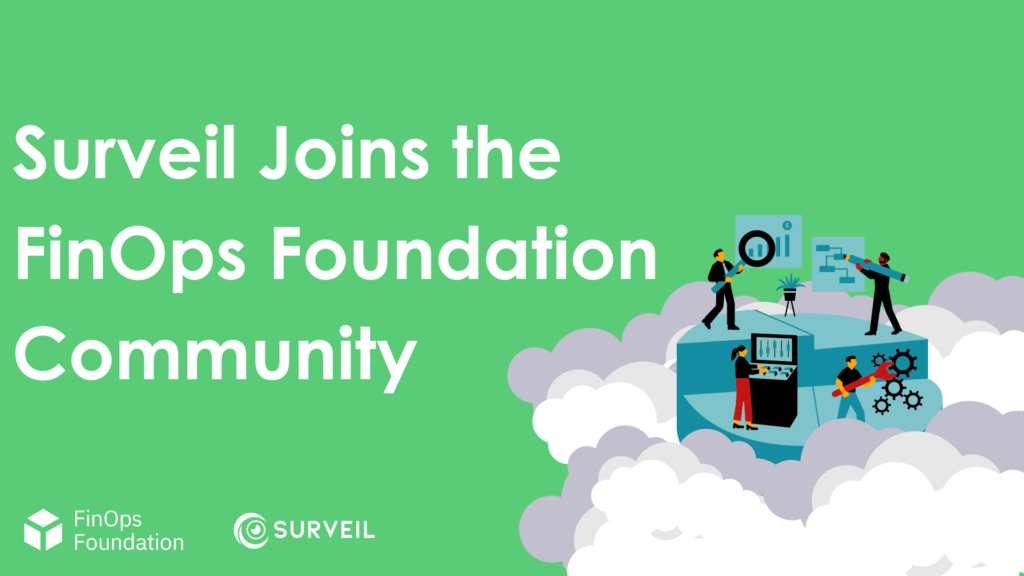We’re thrilled to announce that Surveil has become a member of the FinOps Foundation.
Earlier this year, we formalised our membership with the FinOps Foundation, officially becoming a member of the FinOps community – and we’re already excited about grabbing front row seats to The State of FinOps 2023, as well as contributing to working groups and securing certification.
The mission of FinOps Foundation is simple: to advance every individual who manages the value of cloud, wherever they are. Committed to advancing cloud financial management through first-rate standards, practices, and education, the FinOps Foundation represents a tight-knit community of over 3500 companies – and we’re proud to now count ourselves among that number.
So, What Is FinOps?
FinOps – short for Financial Operations – is a structured approach to optimising an organisation’s cloud spend, without reducing service or quality. In an increasingly cloud-first world, FinOps has carved out an important seat at the organisational table for itself.
Because of how far-reaching the cloud can be, the FinOps team is primarily comprised of cross-functional individuals, working together to streamline processes and gain more financial control and predictability over the cloud.
While FinOps is frequently associated with cloud computing, it’s worth noting that it can in fact be applied to any type of technology spend throughout the business. However, it is especially pertinent in the cloud space, where businesses are required to collaborate with a diverse set of cloud services, each with its own pricing model and cost structure.
How Does FinOps Work?
‘The FinOps Lifecycle’ is a model advised by the FinOps Foundation, which recommends an iterative approach to managing cloud costs. The model’s three stages are as follows:

Inform – The first step of FinOps requires an informative approach to teams across the business, including visibility, allocation, benchmarking, budgeting, and forecasting. This is imperative to the high functioning of teams across the business as reliable decision making will defend against the sometimes-unstable nature of cloud technology.
Optimise – The second step is the need for optimisation of cloud footprint. At this stage, businesses identify areas where they can reduce costs and implement changes to optimise cloud usage.
Operate – The final stage in the FinOps Lifecycle requires ongoing monitoring of cloud spending to ensure that it remains aligned with business objectives. Establishing processes to track costs and implementing tools to automate cloud usage will ensure that businesses maximise resource without unnecessary spending.
It’s important to note that a business can be at more than one of these stages at any time, and the lifecycle is exactly that – a cyclical response to strategic cloud cost management.
Why Is FinOps Important?
While the cloud is a powerful tool to have on your side, nobody wants it being weighed down by redundant costs and underused cloud resources. FinOps helps businesses to prevent and remedy exactly that, ensuring that cloud investments align with financial objectives. Ultimately, by increasing efficiency, FinOps can allow businesses to become more responsive to changing business needs while establishing clear accountability for cloud spending.
Additionally – and this is perhaps our favourite aspect – FinOps can support the building of future success through strategic planning and clear visibility, all supported by the lifecycle’s robust framework.
Sharing information, such as the State of FinOps 2023, means that the FinOps Foundation are best placed to support organisations in reducing cost, saving time, and optimising the data pipeline. As part of the community, we’re looking forward to being able to contribute our ideas in support of the FinOps methodology – and championing the FinOps approach to cloud optimisation.
To learn more about the FinOps Foundation and its members, head on over to their website.






